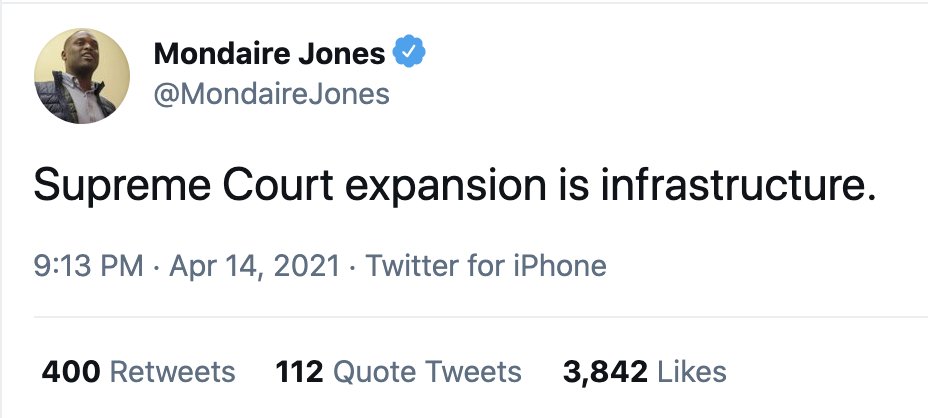
Pizza is infrastructure.
Sleep is infrastructure.
T-shirts are infrastructure.
Making some goddamn sense is infrastructure.
(This is a sitting Congressman by the way. Tweeting this. In earnest.)
OK, OK.
Some people are reading this as a joke.
I don't see any indication of that since Jones has doubled down on this and is also one of the most vociferous advocates of court packing.
But admittedly I can't rule it out. So... I guess it might be sort of funny? Perhaps?
Some people are reading this as a joke.
I don't see any indication of that since Jones has doubled down on this and is also one of the most vociferous advocates of court packing.
But admittedly I can't rule it out. So... I guess it might be sort of funny? Perhaps?

• • •
Missing some Tweet in this thread? You can try to
force a refresh





